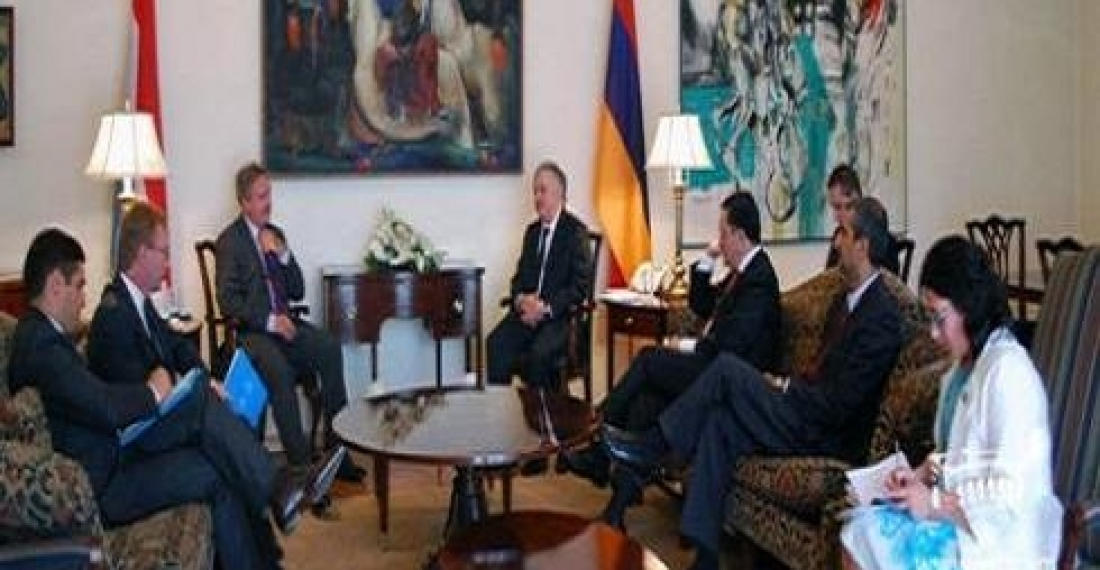Diplomatic efforts around the Nagorno-Karabakh conflict have restarted after days of tension and sharp exchange of words between Baku and Yerevan following the release of Ramil Safarov, on his return to Azerbaijani jurisdiction at the end of August. Safarov was imprisoned for life in Hungary in 2006 for killing an Armenian colleague in Budapest during a NATO language course.
The Special Envoy of the OSCE on the Nagorno-Karabakh conflict, Ambassador Andrzej Kasprzyk yesterday met in Stepanakert with the de facto leadership of the territory, including the President Bako Sahakyan. A spokesman for Sahakyan said that issue of the release of Safarov was raised during the meeting.
In the meantime the Armenian Foreign Minister, Edward Nalbandian, met in Yerevan the visiting Foreign Minister of Luxembourg, Jean Asselborn. Speaking to journalistrs after the meeting Nalbandian said that over the last days, he received dozens of phone calls from his counterparts from various states, including his counterparts from the EU countries, who unequivocally expressed their negative attitude towards the Azerbaijani-Hungarian deal. "There is not a single country which would express its support to Azerbaijan", Edward Nalbandian concluded.
Hungary's decision to send Safarov back to Azerbaijan, and the way that he was received there took the international community by surprise, and their has been widespread sympathy with the Armenian position, with statements from a number of key governments and international institutions. Armenia has been trying to turn the situation to its advantage by depicting Azerbaijan as an irrespionsible player in international politics.
On its part Azerbaijan has insisted that the whole procedure of the release of Safarov was conducted strictly within legal frameworks. Azerbaijan has also articulated its decision within the context of its conflict with Armenia over Nagorno-Karabakh, the continued occupation of its territory by Armenian forces and the humanitarian suffereing resulting from the conflict all of which condition Azerbaijani public opinion which has to be taken into consideration
Commonspace.eu political editor said in a comment: "The debate around this controversy is now entering a new phase, with both sides trying to capitalise on the issue both domestically and internationally. Regardless of this however, the most serious impact of the turn of events is that the lack of trust between the two governments, and even more, between Armenians and Azerbaijanis in general, has reached it lowest point for a very long time. This is already reflecting itself in the ongoing peace process facilitated by the OSCE Minsk Group, and in a range of public diplomacy activities that have been constructed with much patience and effort over a long time. Both will need to recalibrate to get back on track. On the other hand neither Armenia nor Azerbaijan can afford the luxury of disengaging completely from either the formal negotiations or the public diplomacy efforts. This allows a small space for facilitators to consider futrure steps. It is dissappointing however that some of those leading these processes seem to think that their only option at the moment is to do less, when in fact their best option is to do more."
source: commonspace.eu
photo: The Fioreign Minister of Armenia Edward Nalbandian meeting the Foreign Minister of Luxembourg Jean Asselborn in Yerevan on 11 September 2012 (picture copurtesy of the Armenian Ministry of Foreign Affairs).







